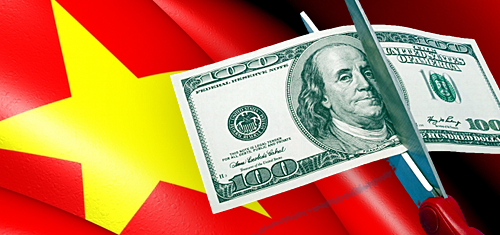 Vietnam will make it easier for foreign investors to launch casinos in the country by halving the required minimum investment threshold, according to a government advisor.
Vietnam will make it easier for foreign investors to launch casinos in the country by halving the required minimum investment threshold, according to a government advisor.
Speaking this week at the Macao Gaming Summit, Stellar Group CEO Augustine Ha Ton Vinh said Vietnam’s government now recognized that its $4b minimum investment requirement had proved a non-starter for international casino developers and thus the government intended to reduce this minimum to a more reasonable $2b.
Vinh, who has been advising Vietnam’s leaders on revising the country’s gambling laws, said the government would also allow developers to commit the $2b in stages, rather than forcing them to blow it all on a project’s initial phase. The proposals are part of draft legislation that Vinh says are complete but likely won’t be made public until February or March.
Vinh said the government hoped to issue three more integrated resort licenses to join the Ho Tram resort, which opened in 2013. But operator interest has been scant, in part due to the investment capital requirement, but also due to Vietnam’s prohibition on local residents gambling in casinos. Operators like Las Vegas Sands have stated that their interest in Vietnam depends on the government relaxing this restriction.
Vietnam has been mulling the idea of allowing locals to gamble, provided they can demonstrate the financial capacity to absorb gambling losses. This week, Vinh suggested locals would have to demonstrate a monthly income of around $750 per month, about five times the country’s average salary figure.
Vietnamese casinos would also likely impose a Singapore-style entry levy on locals. Singapore’s two casinos charge local residents S$100 (US $71) to cross their thresholds for a 24-hour period, with annual passes available for S$2k. Vinh suggested Vietnam’s fee could be around $50 for a one-day pass and $500 for annual passes.
The government would likely test their proposals at Ho Tram, which has already stated its eagerness to participate in such a pilot program. Vinh suggested the government would run the test for a two-year period before deciding whether to allow locals to enter the country’s other gaming venues. The government could also choose to allow locals entry into only select casinos, similar to South Korea, which restricts locals to just one of the country’s 17 gaming venues.
For the record, this isn’t the first time Vinh has made such predictions. At the same conference in 2013, Vinh said he was “80% to 90% certain” that Vietnam would relax its casino stance within “two to three years,” giving Vinh one more year in which to confirm his resemblance to Nostradamus.
